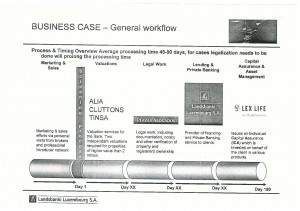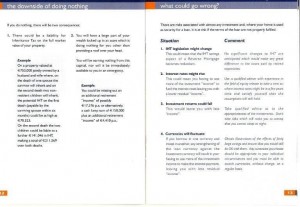
ERVA has had access to a Fuengirola Court ruling won against Landsbanki Luxembourg.
In the case, the Judge states that it is not conceivable that Landsbanki Luxembourg would argue successfully that “they were only the lenders” when borrowers were made to sign disclaimers, pledge agreements were put in place and statements made in respect to the uncertain performance of the underlying investments with Lex Life.
Additionally, the presiding Judge states that he did not need to read the Tax Office binding decision -ruling out the possibility of obtaining any IHT benefits- to infer that such a possibility is manifestly incorrect and against logic/common sense and therefore, misleading.
The sentencing Judge classes OMM -Offshore Money Managers- as deliberately intent on defrauding, at worst, and negligent at best (Colin “McGreedy”) for issuing advertising promising any IHT benefits, stating that it is admitted that this company was the agent of Landsbanki.
Meanwhile, desperately rapacious psychopath (i.e. person devoid of empathy and remorse) Yvette Hamilius continues to ignore any sign that her employers could have made mistakes with the marketing of the “Equity Release” and relentlessly continues in her quest to grab pensioner’s properties.
This ruling sets an interesting precedent in respect to Rothschild’s much-vaunted allegation that they “were only the lenders”, when the loan was inextricably linked to investment portfolio via the pledge agreement and Rothschild did have, no matter what David de Rothschild and Eamon Bermigham say, a vetting procedure for prospective investments vehicles.



 Jyske Bank Gibraltar product and set out to help his clients avoid the horrors of Spain’s tax system.
Jyske Bank Gibraltar product and set out to help his clients avoid the horrors of Spain’s tax system.